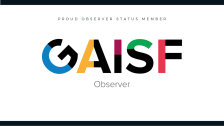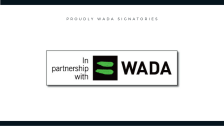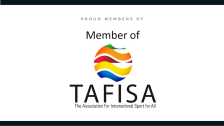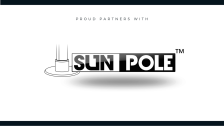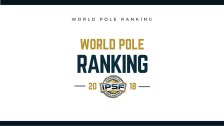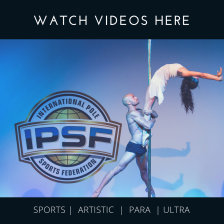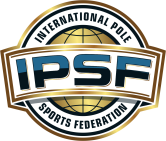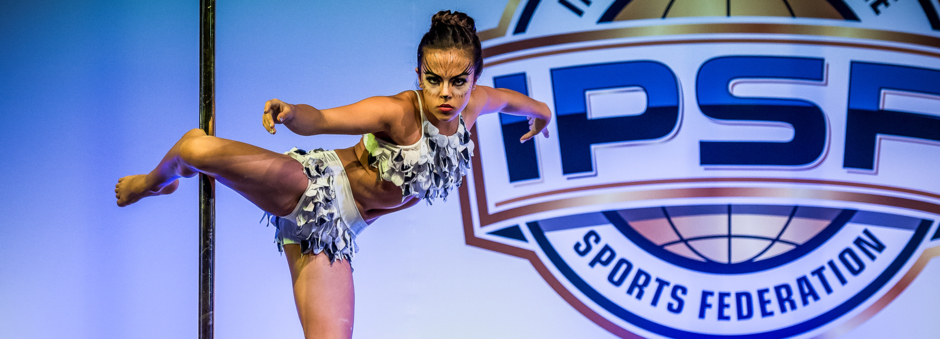
Anti Doping Information and Policies
About Anti-Doping – Clean Sport
The IPSF is committed to Clean Sport and in line with its core values of honesty, team work, trust and respect. The IPSF are an advocate of Anti-Doping and the Federation adopted the World Anti-Doping Code (and launched its Anti-Doping program of education) in 2013. In July 2014 for the first time testing took place in competition at the World Championships.
What does this mean for you?
As an athlete or a coach you will be given a lot of information, advice and guidance on how to make sure you remain 100% free of prohibited substances at all times. One of the main problems that athletes in other sports have found is that health supplements are to be avoided.
As a National Federation you will also need to adopt the WADA Code to remain accredited by the IPSF. There will be an education programme available for you, and we can work together to make sure the rules for your particular country are also followed. We will work with you to ensure you get support in your country from athletes, coaches and competition holders.
As a competition holder, you will need to adopt the WADA Code to be accredited as an IPSF competition. There will be an education programme available for you, and we can work together to make sure the rules for your particular country are also followed. We will work with you to ensure you get support in your country from your National Federation, athletes and coaches.
Our full by-laws are in the IPSF constitution, but if you would like to find out more, there are some links below.
For every World Pole & Aerial Championship, athletes will be chosen randomly and will be tested under the authorization of the IPSF.
WHAT IS DOPING?
Doping is defined as the occurrence of one or more of the following Anti-Doping Rule Violations (ADRVs):
Presence of a prohibited substance in an athlete’s sample
· Use or attempted use of a prohibited substance or method
· Refusing to submit to sample collection after being notified
· Failure to file athlete whereabouts information and missed tests
· Tampering with any part of the doping control process
· Possession of a prohibited substance or method
· Trafficking a prohibited substance or method
· Administering or attempting to administer a prohibited substance or method to an athlete
· Complicity in an ADRV
· Prohibited association with athlete support personnel who has engaged in doping
WHY IS DOPING IN SPORT PROHIBITED?
The use of doping substances or doping methods to enhance performance is fundamentally wrong and is detrimental to the overall spirit of sport. Drug misuse can be harmful to an athlete's health and to other athletes competing in the sport. It severely damages the integrity, image and value of sport, whether or not the motivation to use drugs is to improve performance. To achieve integrity and fairness in sport, a commitment to clean sport is critical.
The use of doping substances or doping methods to enhance performance is fundamentally wrong and is detrimental to the overall spirit of sport. Drug misuse can be harmful to an
athlete's health and to other athletes competing in the sport. It severely damages the integrity, image and value of sport, whether or not the motivation to use drugs is to
improve performance. To achieve integrity and fairness in sport, a commitment to clean sport is critical.
Dangers of Doping – Get the Facts
Level the Playing Field – Video
WHAT DO ATHLETES AND ATHLETE SUPPORT PERSONNEL NEED TO KNOW ABOUT ANTI-DOPING?
“Every athlete has the right to clean sport!”
Any athlete may be tested in- and out-of-competition, anytime, anywhere and with no advance notice.
The principle of strict liability applies in anti-doping – if it is in the athlete’s body, the athlete is responsible for it.
Athletes’ responsibilities include (but are not limited to):
· complying with the IPSF’s Anti-Doping Rules and relevant policies (in line with the World Anti-Doping Code );
· being available for sample collection (urine or blood), whether in-competition or out- of-competition;
· ensuring that no prohibited substance enters his body and that no prohibited method is used;
· making sure that any treatment is not prohibited according to the Prohibited List in force and checking this with the prescribing physicians, or directly with the IPSF if
necessary;
· applying to the IPSF (or national anti-doping organization if the athlete is a national level athlete) if no alternative permitted treatment is possible and a Therapeutic Use
Exemption (TUE) is required (see the IPSF’s TUE application process)
· reporting immediately for sample collection after being notified of a doping control;
· ensuring the accuracy of the information entered on the doping control form during sample collection (including stating any medications and supplements taken within
the seven days prior to sample collection, and where the sample collected is a blood sample, blood transfusions within the previous three months);
· cooperating with anti-doping organizations investigating anti-doping rules violations (ADRVs); and
· not working with coaches, trainers, physicians or other athlete support personnel who are ineligible on account of an ADRV or who have been criminally convicted or
professionally disciplined in relation to doping (see WADA’s Prohibited Association List)
Note: during doping control, the athlete must remain within direct observation of the Doping Control Officer (DCO) or chaperone at all times from when the initial contact is made until the completion of the sample collection procedure. The athlete must also produce identification upon request.
Athletes’ rights include (but are not limited to):
· during the doping control:
o bringing a representative and, if available, an interpreter;
o asking for additional information about the sample collection process;
o requesting a delay in reporting to the doping control station for valid reasons
International Standard for Testing and Investigations Art. 5.4.4
o requesting modifications for athletes with impairments (if applicable).
· requesting and attending the B sample analysis (in the case of an Adverse Analytical Finding); and
· in the case of an Anti-Doping Rule Violation (ADRV) being asserted, the athlete has the right to a fair hearing and the right to appeal the hearing decision.
Athlete Reference Guide to the 2021 Code
At-a-Glance: About Anti-Doping leaflet
At-a-Glance: The Doping Control Process leaflet
Play True Quiz – Youth Version
Coaches, trainers, managers, agents and other support personnel have a role in defending clean sport and supporting the athletes in the anti-doping processes.
· knowing and complying with all applicable anti-doping policies and rules, including the IPSF’s Anti-Doping Rules(in line with the World Anti-Doping Code
· refraining from possessing a prohibited substance (or a prohibited method)*, administering any such substance or method to an athlete, trafficking, covering up
an anti-doping rule violation (ADRV) or other forms of complicity and associating with a person convicted of doping (prohibited association). These are ADRVs applicable to Athlete Support Personnel under Article 2 of the World Anti-Doping Code and the IPSF’s Anti-Doping Rules.
* unless the Athlete Support Personnel can establish that the possession is consistent with a TUE granted to an athlete or other acceptable justification. Acceptable justification would
include, for example, a team doctor carrying Prohibited Substances for dealing with acute and emergency situations.
Athlete Support Personnel’s rights include (but are not limited to):
· In the case of an ADRV being asserted, the Athlete Support Personnel has the right to a fair hearing and the right to appeal the hearing decision.
IPSF Intelligence Gathering Process.pdf
Adobe Acrobat document [239.6 KB]
IPSF Proceedure for Provisional Suspensi[...]
Adobe Acrobat document [233.0 KB]
IPSF Webpage for Athlete's TUE Process.p[...]
Adobe Acrobat document [209.6 KB]
Athlete_Guide-Final_Low_Res_20110224(Jap[...]
Adobe Acrobat document [3.5 MB]
ADS_Athletes__Medications_QA_Brochure.pd[...]
Adobe Acrobat document [527.3 KB]
Email TUE applications and questions to anti-doping@polesports.org APPLICATION CLOSE 30/07/2020
This list is continually updated on the WADA website. You are advised to check there if you are in any doubt about a substance you may have taken or may be planning to take. Remember, it is YOUR respo
wada_2020_english_prohibited_list_0.pdf
Adobe Acrobat document [220.4 KB]
This information is the latest guidance and has been adopted into IPSF policy.
Anti-doping Info.pdf
Adobe Acrobat document [215.7 KB]
This is the full WADA Code.
wada_anti-doping_code_2019_english_final[...]
Adobe Acrobat document [625.2 KB]
An information leaflet for athletes.
What is 100% me for Athletes.pdf
Adobe Acrobat document [153.8 KB]
An information leaflet about how testing is carried out.
Doping_Control_Leaflet_EN.pdf
Adobe Acrobat document [472.9 KB]





